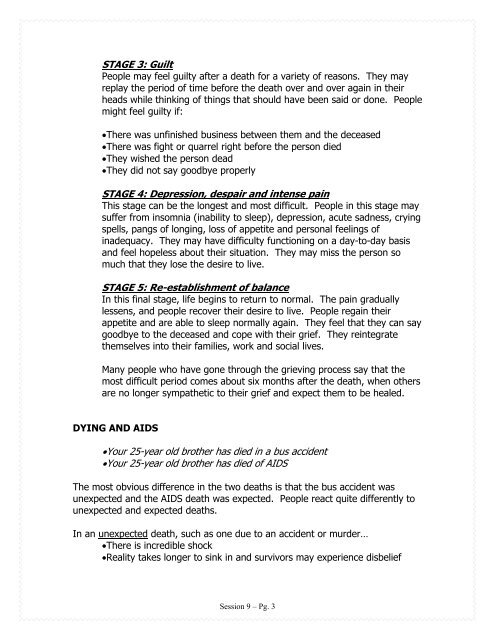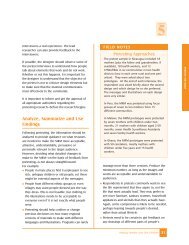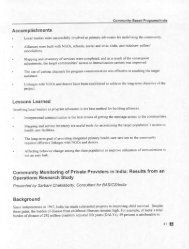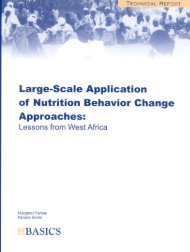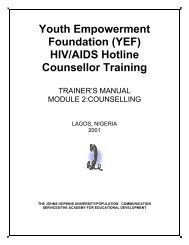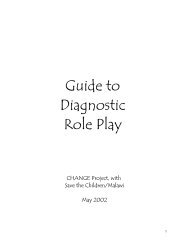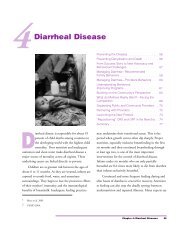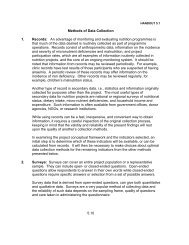MODULE TWO: COUNSELLING - FHI 360 Center for Global Health ...
MODULE TWO: COUNSELLING - FHI 360 Center for Global Health ...
MODULE TWO: COUNSELLING - FHI 360 Center for Global Health ...
Create successful ePaper yourself
Turn your PDF publications into a flip-book with our unique Google optimized e-Paper software.
STAGE 3: Guilt<br />
People may feel guilty after a death <strong>for</strong> a variety of reasons. They may<br />
replay the period of time be<strong>for</strong>e the death over and over again in their<br />
heads while thinking of things that should have been said or done. People<br />
might feel guilty if:<br />
•There was unfinished business between them and the deceased<br />
•There was fight or quarrel right be<strong>for</strong>e the person died<br />
•They wished the person dead<br />
•They did not say goodbye properly<br />
STAGE 4: Depression, despair and intense pain<br />
This stage can be the longest and most difficult. People in this stage may<br />
suffer from insomnia (inability to sleep), depression, acute sadness, crying<br />
spells, pangs of longing, loss of appetite and personal feelings of<br />
inadequacy. They may have difficulty functioning on a day-to-day basis<br />
and feel hopeless about their situation. They may miss the person so<br />
much that they lose the desire to live.<br />
STAGE 5: Re-establishment of balance<br />
In this final stage, life begins to return to normal. The pain gradually<br />
lessens, and people recover their desire to live. People regain their<br />
appetite and are able to sleep normally again. They feel that they can say<br />
goodbye to the deceased and cope with their grief. They reintegrate<br />
themselves into their families, work and social lives.<br />
Many people who have gone through the grieving process say that the<br />
most difficult period comes about six months after the death, when others<br />
are no longer sympathetic to their grief and expect them to be healed.<br />
DYING AND AIDS<br />
•Your 25-year old brother has died in a bus accident<br />
•Your 25-year old brother has died of AIDS<br />
The most obvious difference in the two deaths is that the bus accident was<br />
unexpected and the AIDS death was expected. People react quite differently to<br />
unexpected and expected deaths.<br />
In an unexpected death, such as one due to an accident or murder…<br />
•There is incredible shock<br />
•Reality takes longer to sink in and survivors may experience disbelief<br />
Session 9 – Pg. 3


